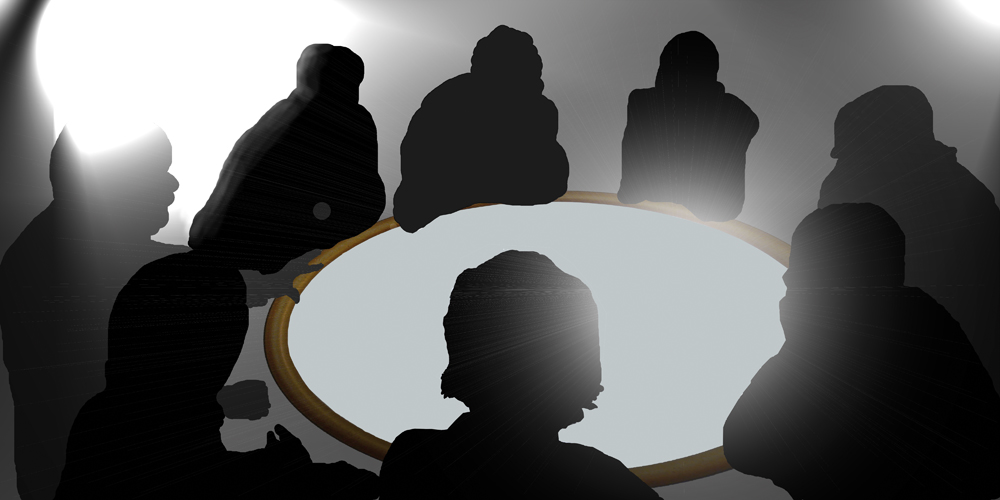Strange Poker Rules You May Not Even Know!
7 years ago

11 Oct
Poker takes five minutes to learn but a lifetime to master". With so many different formats and so many possibilities within those formats even seasoned players can often encounter strange situations that require special - often counterintuitive -rulings. This is especially true for live poker. Even in the context of the casino with a professional dealer at the table, players are still required to pay attention to the game state and lack of that attention can have very unpleasant consequences.
Protect Your Hand
While this rule is fairly straightforward and many new players are aware of it people usually aren't fully conscious of the extent of their responsibility when it comes to protecting the hand. While putting a chip or a card protector on top of your hand will be sufficient 99.9% of the time according to the rules you can't allow anyone else the access to your hand if you want it to remain live. That includes the dealer! Here's what might happen if you fail to do that:
Accidental Collusion
We came a long way since the wild west poker days where cheating was an integral part of the game. Nowadays, cheating is much more difficult and while it can happen in the context of a home game, it's much more difficult to pull off in a casino with a professional dealer and state of the art security. That being said, even well-intentioned people can fall victim to their own ignorance and do something that can be classified as collusion. Let's consider this example.
You're playing in a small stakes tournament and you called a small all-in shove from a short stack player. Another player with a big stack that's sitting behind you decided to cold-call. You check the flop, big stack behind you checks back. Since you're close to the bubble you say to the player behind you that you should both check the hand down and see the showdown (in order to maximize the chance of eliminating the player that's already all-in). This is a big no-no. While this line of play happens very often and it's usually correct if you explicitly communicate an agreement about checking the hand down it will be considered collusion and penalized accordingly so beware!

You Must Bet the Nuts!
Speaking of preventing (potentially unintentional) collusion, one of the rules states that player must always bet the nuts on the river if he/she is the last to act. The last to act part is very important since check/raising the nuts on the river is a perfectly viable strategy and penalizing someone for attempting to make that play wouldn't make much of a sense. However, there's no strategic advantage to skipping a value bet with the hand that can't lose and therefore players are forced to make that play as shown in this famous example from WSOP Main Event:
Burn Baby Burn
If you're a poker enthusiast there's a good chance you had the pleasure of seeing the movie "Lucky You" and you remember the scene where the main protagonist lost the WSOP Main event super satellite seat due to dealer error and a strange ruling. Here's a super quick recap of that scene. In the final hand of the tournament, the dealer failed to burn a card before dealing the river which gave Eric Bana's character a winning hand. However, his opponent noticed the mistake and after quick consultation with the tournament director the river card was treated as a flashed card, ended up as a burned card and dealer was forced to deal another card of the top of the deck which ended up being one of the outs Michael Shannon's character needed to complete his hand.
While Lucky You was full of goofs and factual errors the burned card rule was actually correct. Since we're on the topic of strange rules regarding burned cards let's consider another example. If the dealer accidentally burned two cards before dealing the third as the turn, that third card would be considered a flashed card and returned to the top of the deck (as a burn for the river) and the second burned card would be considered an actual turn card. Again, it's extremely important for the players to pay attention to the game state even in the presence of a professional dealer.
Suit Rankings
While most poker variants don't really take into account the suit rankings and you can't beat a club flush with a spade flush in hold'em or PLO (which would be especially difficult in a game with five community cards) there are some situations in poker (like drawing table seats etc.) were the classic Bridge ranking system is recognized. In case you're not familiar with it, it's alphabetical. From worst to best: Clubs, Diamonds, Hearts, Spades.

Chip Racing
Another situation where Bridge suit rankings are applicable, that you might not be familiar with if you're not a seasoned live tournament player, is so called chip racing. It's a way of removing the odd low-value chips from the game in latter stages of the tournament. Dealer checks how many of those low-value chips are still in play to figure out how manny higher value chips will be up for grabs.
For example, if there are 16 $100 chips in play dealer would replace them with three $500 chips. Each player with a $100 chip is delt a card face up for each $100 chip he/she has, then players with the highest card values (Bridge suit ratings are used in case of a tie) receive one $500 chip.







Comments
You need to be logged in to post a new comment